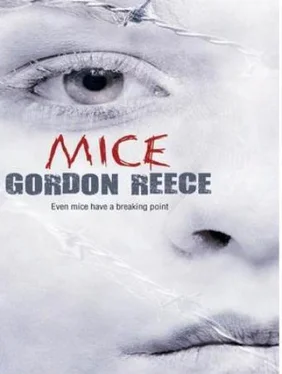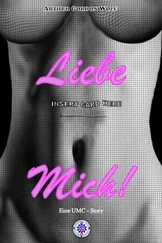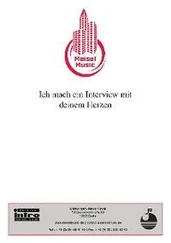Another sign of my recovery was that my interest in the laptop began to reawaken.
I hadn’t gone near it since that night. I hadn’t wanted to touch it; I hadn’t even wanted to look at it. It was so caught up in all the horror (in some ways I even blamed it for everything that had happened) that the thought of taking it out of the sideboard was almost as repulsive as the thought of disinterring the burglar’s body.
As the weeks passed, however, I slowly started to overcome my aversion. I began to feel excited again by the thought of writing my essays on it, and being able to use the Internet without all the torturous delays and inexplicable glitches I had to endure with the beast. I was convinced the laptop would help drag my work out of the malaise it had fallen into. And my writing ambition, which had become so caught up with the whole idea of the computer, started to twitch back into life. I caught myself thinking with a callous egoism that even I found shocking: After everything I’ve lived through, surely I’ll be able to write something truly great? After all, how many writers actually know what it’s like to kill somebody?
Eventually I took the laptop out of the sideboard, where it had lain untouched since my birthday, and with Mum’s help, set it up on the dining-room table. At first I was worried it wouldn’t work, remembering how heavily it had fallen to the ground when I’d struck the knife between Paul Hannigan’s shoulder blades, but it flickered into electronic life at the first click of the switch on its side.
As I’d hoped, the laptop gave my revision a muchneeded boost. I stopped writing in longhand altogether and wrote notes, essays, everything, on it. I think I was actually able to type faster than I could write with the swirly girly hand I’d developed over the years at school. When Mum’s printer went on the blink, Roger was happy to take my memory stick home each day and print everything out for me on his computer. He refused to take any money for the paper or the ink that he used and I felt a huge gratitude towards him — more than gratitude, in fact, more like a warmth — and it reassured me to think that my capacity for friendship hadn’t been poisoned by what had happened with the JETS.
On the surface, Mum seemed to be making an excellent recovery too. Her eye healed up quickly and she was delighted when she didn’t have to wear make-up to work any more to camouflage the bruising.
She carried on in the office as if nothing had happened; she settled several small claims and even won a case that unexpectedly went to trial. This win gave her an enormous amount of pleasure, partly because the circumstances of the accident — a fall on some stairs in a restaurant — had been difficult to prove, but mainly because the losing defendant, the Love Shack Rib House, was represented by Everson’s, her old employer. It was the closest she’d ever come to scoring a victory over Dad and she was absolutely ecstatic about it.
But there were signs that, behind the facade, Mum wasn’t finding things anywhere near as easy as she made out.
The sleeping pills that cured my insomnia had little effect on Mum’s. Although she still went up to bed at around eleven, she was rarely able to fall asleep. She tossed and turned for hours, but sleep evaded her desperate pursuit. Eventually, unable to bear the futility of it any more, she’d get up and go downstairs. I often heard the sound of the television drifting faintly up the stairwell when I got up to go to the bathroom in the night, as she whiled away the long sleepless hours. For someone like Mum, insomnia was the worst type of problem she could face because it couldn’t be solved intellectually: the harder you try to sleep, the less likely you are to sleep. She tried to out-think it instead of just not thinking about it at all. And so the insomnia utterly defeated her.
She’d go back up to bed around three o’clock in the morning and finally succeed in falling asleep as dawn was breaking. When her alarm beeped urgently an hour later, she’d wake up more exhausted than if she’d had no sleep at all. At breakfast her eyes would be puffy and watery, her face pale, her brow furrowed — a furrow that didn’t disappear even when she smiled. I’d ask if she’d slept badly again and she’d just shrug it off. ‘It’ll pass,’ she’d say, ‘it’ll pass,’ or else she’d quote a line from Dorothy Parker — ‘How do people sleep? I seem to have lost the knack.’ But she didn’t want to talk about it, and if I kept on, she’d quickly grow short-tempered and snappy.
Mum drank every night now, something she never used to do. Often the very first thing she did when she got in from work was to pour herself a glass of wine, before she’d even taken off her jacket or kicked off her shoes. I don’t think she drank because she liked it. She drank, at first, to anaesthetize herself. The wine dispelled the demons that were haunting her, or at least rendered them more manageable. After all, she was the one who had actually killed Paul Hannigan with that second deadly blow of the chopping board; she was the one who had dug up his corpse and searched through his blood-soaked pockets. Later on, I think she drank in the hope that the alcohol would bring her the undisturbed night’s rest she craved so much; and which, of course, that false friend never did.
While I’d gone back to playing my flute almost immediately after that night, Mum wouldn’t touch the piano. When I asked her to play a duet with me now, she always had an excuse — she was too tired or she had too much work to do. But I knew full well what the truth was. I knew she avoided going near the piano for exactly the same reason that I avoided going near the oval rose bed. ( Was The Gypsy Wedding still playing in her head when Paul Hannigan marched us down the stairs? )
Mum became obsessed with security, and regularly came home with new locks that she’d bought in the hardware shop in town. She installed two new heavyduty chains on the front door and two on the back, and put sturdy locks on her bedroom door and mine. She bought a decoy alarm system (the packet boasted that a burglar won’t be able to tell the difference), since the real thing was prohibitively expensive, and fitted it in a prominent position at the front of the house. She bought clever clip-on locks for every window, as she’d concluded that Paul Hannigan had probably got in by forcing the one in the downstairs toilet.
I watched her going up and down the stairs with her screwdriver, climbing up and down the stepladder outside the front door, and managed not to say what I was thinking: The lock hasn’t been invented that can keep our own fears out .
But the most worrying change I noticed in Mum was in her relationship with Graham Blakely. When she talked about her run-ins with him now, she appeared less the victim and more an equal and willing belligerent in their office wars. She backed down less readily when he lost his temper with her, and — to Brenda and Sally’s amazement — often gave as good as she got in their exchanges. If this had been all, I wouldn’t have been concerned. I was sick and tired of hearing about how this office Hitler intimidated her. But it was more than just standing up for herself. Ever since she’d had that first row with him on my birthday, it was as if Mum had actually begun to relish her confrontations with Blakely. Sometimes it seemed to me that she actually went out of her way to provoke them. And if she got the better of him in an altercation, she would recount it with breathless enthusiasm over dinner, her hands swooping wildly around her as if they had a life of their own, brushing blindly against her glass and threatening to knock it to the floor.
Читать дальше












